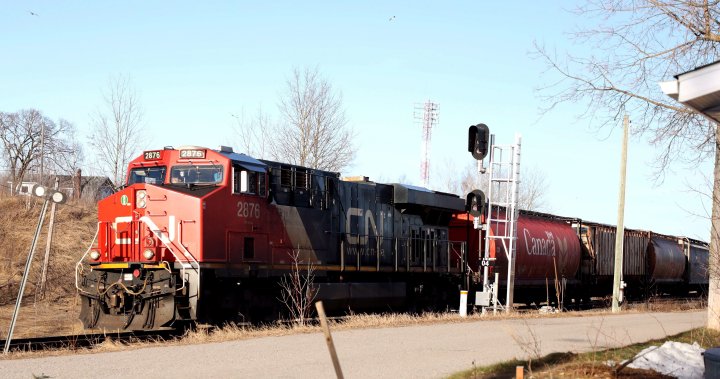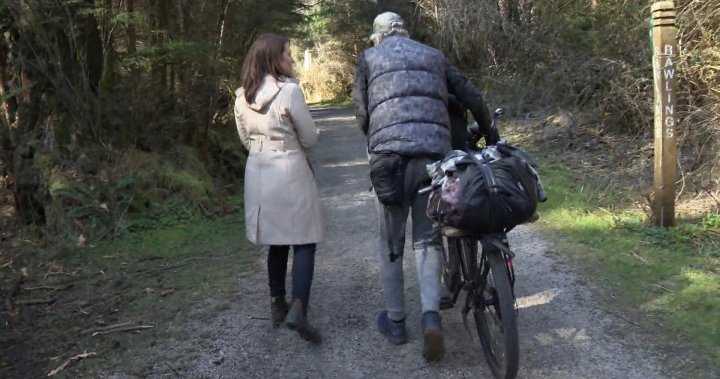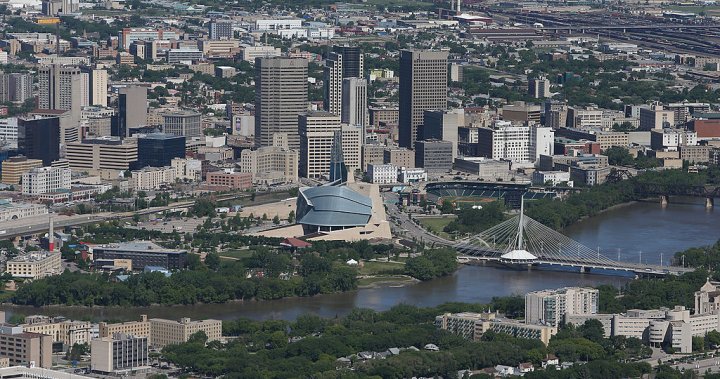A health group is calling for more funding and help for a local network trying to help people struggling with both homelessness and addiction in a northern Ontario town.
The Sioux Lookout First Nations Health Authority (SLFNHA) said it was working in a “broken and underfunded health and mental health system,” trying to help people impacted by mental health and addictions.
The group is based in Sioux Lookout, a town in Ontario’s north that acts as a hub for more than 30 surrounding First Nations communities. Its airport and hospital, in particular, bring tens of thousands to the town every year for appointments.
Data from the local Ontario Provincial Police detachment shows police arrest an average of 4,150 people every year. The number is a stark illustration of how busy officers are in a town of just under 6,000 people and another 25,000-plus people who fly in.
Insp. Karl Duewel, local OPP detachment commander, says the arrest numbers come from the town’s unique situation. He told Global News police often take intoxicated people to the station, keeping them in cells overnight.
“The concern that we have is that, when you’re on the street and things like that happen, you’re very, very susceptible to victimization,” he said.
“And we’re now in the winter months again and there’s not a lot of places for people to go when they’re highly intoxicated where they’ll be accepted and allowed to go.”
In a statement, SLFNHA said police are only involved in situations when “safety is a concern” for those involved, with efforts made to get people back into shelters.
Get the latest Health IQ news.
Sent to your email, every week.
“It is crucial to clarify that individuals seeking assistance are not simply ‘kicked out’ onto the streets,” said Sonia Isaac-Mann, SLFNHA’s CEO and president.
“SLFNHA staff work tirelessly to engage with clients, providing them with the necessary accommodations and support to attend appointments and access essential services. Harm reduction is (the) priority over displacement in concerning situations.”
The local health group said it hosts between 250 and 325 people per night over 303 beds in its three hostels. Security responds to roughly 187 incidents per month, with 92 per cent of those who are intoxicated re-accommodated.
SLFNHA and some First Nations groups pay for some replacement flights themselves when people miss their connections.
Without help from other levels of government, however, the group said gaps in the system remain.
“While local partners coordinate to address gaps in the system, it is essential that governments coordinate across ministries and departments to provide adequate funding,” the group said.
“Despite proactive approaches and repeated efforts to collaborate with local organizations and leaders, including submitting proposals for additional support to the local shelter, adequate funding from the federal government has yet to be received.”
SLFNHA said it had applied for funding for support for a homeless shelter.
“This lack of support impedes the ability to expand necessary services and infrastructure within the community, ultimately impacting the health and well-being of those vulnerable and in need of support,” SLFNHA said.
“Adequate funding for treatment centres in the area is urgently required.”
Despite local actions to escalate attention to the situation, little has changed, according to SLFNHA chief operating officer Janet Gordon.
“Numerous states of emergency called over three decades have generated inadequate responses from the provincial and federal governments,” she said in a statement.
“Understanding our current state of mental health and addiction crisis conveys the urgency of an epidemic-level response from the provincial and federal government.”
A spokesperson for the provincial government previously said it had invested significant funds in Sioux Lookout and the surrounding area, including $90 million for addiction treatment beds.
The federal government said it ran a “broad range” of programs across the north.
“Canada is also working directly with First Nations communities for their specific health care needs to facilitate access close to communities,” a spokesperson said.
“By building in-community capacity, there will be less strain on resources in hubs like Sioux Lookout.”
© 2024 Global News, a division of Corus Entertainment Inc.





